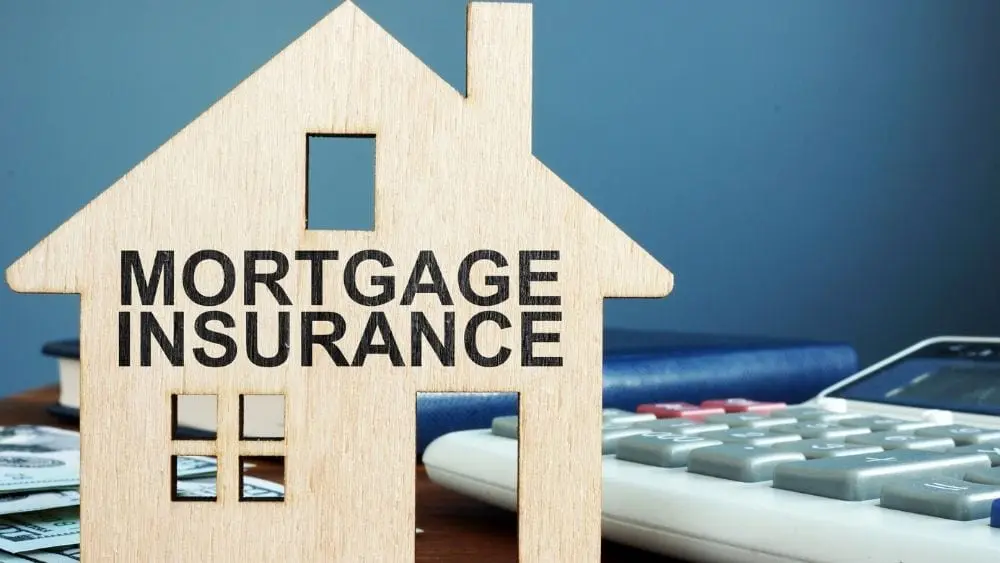
Sprawling forests, wide-open plains, and mountain views, with plenty of sunshine to boot – it’s easy to see why homebuyers decide to move to Oklahoma. But if you’re planning on buying property in the Sooner State, make sure you’re saving up for closing costs on top of your down payment.
Closing costs are the final set of major expenses homebuyers must pay before they get the keys to their new home. In a nutshell, closing costs are an umbrella term, encompassing all the administrative and legal services homebuyers are charged during the homebuying journey. Think: lender, appraiser, home inspector, attorney, title agent, insurance providers – don’t forget the taxman, too. Instead of paying for each service provider one by one, these fees are cobbled together and paid in a single sum. All in, closing costs typically amount to two to five percent of the home’s purchase price.
If you’re buying property in Oklahoma, NewHomeSource has put together the following guide to help you determine how much you should be saving for closing costs, state-specific rules, and how you can potentially lower these costs.
How Much are Closing Costs in Oklahoma?
Closing costs in Oklahoma run, on average, $2,511 for a home loan of $134,618, according to a 2021 report by ClosingCorp, which provides research on the U.S. real estate industry. That price tag makes up 1.87 percent of the home’s price tag.
Oklahoma is in the middle of the pack, ranking 25th with the least expensive closing costs. It’s still pricy compared to its neighbors, though – Missouri and Arkansas, for example, have some of the nation’s cheapest closing costs at just $1,290 to $1,785. For comparison’s sake, the national average is $6,087.
But homebuyers in Oklahoma should anticipate spending more than these initial estimates. ClosingCorp excluded two major closing cost expenses – loan origination fees and private mortgage insurance – or PMI, which homebuyers must purchase if their down payment is less than 20 percent. Both expenses can add thousands to closing costs.
Keep in mind, though, that closing costs fluctuate greatly depending on a handful of factors, such as the price and location of the home, your down payment, credit score, and type of mortgage.

What’s Typically Included in Oklahoma’s Closing Costs?
With so many moving parts, it’s easiest to categorize your expenses into three columns: Property-related fees, mortgage-related fees, and annual fees. The expenses start tallying up as soon as you apply for a home loan.
Here’s a closer look at some common charges you’ll encounter in Oklahoma, including state-specific details:
Mortgage-Related Fees
The following are the closing cost fees you’ll incur for securing a mortgage, including the protocol for hiring an attorney:
Loan Origination Fees
To start, estimate loan origination fees of about 0.5 percent to 1 percent of your mortgage.
Unless you have the cold hard cash to buy your home outright, you can count on your lender charging you for all the administrative work involved in setting up your mortgage. They’ll handle the underwrite, provide you with preapproval letters for house hunting, check your credit history, and process the funding at closing.
This is one of the largest portions of your closing costs.
Credit Report Fees
Whenever you apply for credit – whether it’s a credit card, personal loan, or a mortgage – your lender will need to do a thorough credit check to see how you’ve managed existing debts. The snapshot they receive will dictate how much they’ll lend you and at what interest rate.
Your lender will bill you for the full cost of your credit report. If there is more than one name on the loan application, double this expense.

Private Mortgage Insurance
If you aren’t providing a 20 percent down payment, your lender will expect you to buy private mortgage insurance. This allows borrowers to qualify for a conventional loan even if they put down only five to 19.99 percent. While you’re paying for the insurance, the coverage is for your lender in case of default.
PMI typically ranges from 0.25 percent to 2.25 percent of your loan. Once you hit the 20 percent mark in home equity, you don’t have to pay PMI.
Attorney Fees
In some states, it’s mandatory to hire a real estate attorney when buying a home, but this rule doesn’t apply to Oklahoma.
You may still decide to enlist the wisdom of an attorney, especially if your home purchase is a complicated one, such as if the property you’re buying is in foreclosure or out of state.
Even in a straightforward home sale, an attorney can help with the legal aspects of the purchase, from drafting your purchase agreement to certifying deeds and reviewing your home insurance and title insurance policies.
Legal fees will vary, depending on the complexity of the sale. Some attorneys bill by the hour while others may charge a retainer fee.
Escrow Fees
In Oklahoma, homebuyers may opt to hire a title company or escrow agent who will guide them through each step of the closing process.
Your escrow agent will set up a third-party account to hold onto your funds, such as your earnest money deposit, insurance payments, and other fees. Basically, your seller (and the various vendors you’ve hired to help with your home purchase) won’t receive any funds until both parties have met all their conditions on the home sale, and the ink is dry on the property transfer. Instead, your cash will remain in a neutral escrow account.
In Oklahoma, this is typically an expense that’s split down the middle between buyer and seller.

Before your lender transfers the funds, your potential new home will need to clear a handful of pivotal checkpoints. Common property-related fees include:
Title Search
During the closing process, you will need to pay for a title examination to make sure the property is free and clear for you to own. With this step, an abstractor will scan historical records like deeds, court records and property, and name indexes to confirm the seller’s right to transfer ownership.
This step is worth every penny – you’ll want to make sure you aren’t handing over your life’s savings to buy a property that’s rife with ownership disputes, unpaid taxes, judgments, or lawsuits in progress.
Title Insurance
Once the title search is complete, you’ll need to cover your bases with title insurance policies for both you and your lender. These are called the owner’s title policy and the lender’s title policy. It’s one of several insurance policies — alongside homeowner insurance and PMI — that you’ll need to buy before your lender funds your loan.
Title insurance protects both parties in case of “defects in title” – if something is overlooked during the title search and there are claims to your property. If your ownership is questioned, the insurance will cover court courts and related fees.
In Oklahoma, it’s customary for the seller to pick up the tab for the owner’s title insurance while the homebuyer – you – are billed for the lender’s policy premiums. This is a one-time expense; while most insurance policies are paid annually, title insurance is paid just once at closing, and it can’t be transferred over to the next buyer.
Property Appraisal
Before your lender processes your loan, your potential new home will need to be appraised. They’ll send a third-party appraiser to scope out the property to make sure it’s priced at the right value. Essentially, they’re doing their due diligence here – if you default on your mortgage and your lender must foreclose, they need to know they can sell the property and recoup their costs.
The appraiser will scan the home’s size, features, condition, and see how it stacks up to homes priced similarly in the community, to determine its fair market value.
Because your lender gets to choose the appraiser, consult with them on price points.
Home Inspection
For your peace of mind, pay for a thorough home inspection to make sure you’re buying a worthy investment that won’t lead to a handful of costly repairs. While an appraiser focuses on the market value, an inspector will check on the nuts and bolts of the property from the foundation to the roof, and everything in between.
Pay close attention to what your inspector says; they could flag key issues that already exist or may surface in the coming years. With this intel, you could ask your seller to knock down the price point or make repairs before finalizing the deal.
Real Estate Transfer Tax
The real estate transfer tax — also called a deed tax or documentary stamp tax — is a typical charge each time property switches hands. All but a dozen or so states assess these taxes, including Oklahoma.
In Oklahoma, transfer taxes are $0.75 for every $500 of property value. While this rule isn’t set in stone, sellers usually pick up this cost. It could be delegated back to you during negotiations, though.
Annual Fees

From managing your mortgage to staying on top of utility bills, homeownership includes recurring expenses you’ll need to consider. Your closing costs will incorporate a handful of fees that you’ll need to start paying annually:
Property Taxes
In Oklahoma, homeowners pay about 0.87 percent of their home’s assessed market value in property taxes, according to the Tax Foundation. On average, homeowners pay just $1,278 in property taxes, one of the lowest in the country, the Oklahoma Policy Institute says. Since they are collected on a county level, percentages will vary.
Property taxes are a prepaid expense, meaning they must be paid at closing and can’t be rolled into your home financing.
After closing, property taxes are due annually, by December 31st.
Homeowner’s Insurance
From clearing an appraisal, to ordering a title examination and credit check, your lender has a lengthy list of requirements you’ll need to fulfill before they transfer funds. Another purchase you’ll need to make is homeowner’s insurance – you must have this policy in effect and paid for the upcoming year at closing.
It’s an essential buy for your comfort, too. Homeowner’s insurance covers any physical damage to your home caused by fire, wind, vandalism, or theft.
How Can I Lower my Closing Costs in Oklahoma?

After saving for a down payment, new furniture, and the big move, the last thing homebuyers need is another major expense like closing costs. If the sticker shock is setting in, don’t panic; there are a handful of ways homebuyers can lower their overall closing costs.
Here’s a look at key strategies that could save you thousands:
Closing Cost Assistance
Take advantage of Oklahoma’s homeownership assistance programs as it could put a significant dent in your closing costs.
First, check if you qualify for programs organized by the Oklahoma Housing Finance Agency (OHFA). It has a Homebuyer Down Payment Assistance Program, providing up to 3.5 percent of your approved mortgage amount that’s allocated first to your down payment and then to your closing costs. Qualifying is based on your income and the cost of the home.
From Lawton to Oklahoma City, and Tulsa, there are local homeownership assistance programs worth checking out, too.
Get Your Finances in Shape
Before you set foot in a lender’s office, get your credit score and your finances in great shape to show them you’re a trustworthy borrower. Bear in mind, your mortgage is a debt you’ll be repaying for decades, so securing a lower interest rate could save you thousands over the lifetime of your loan.
Save as much as you can for your down payment. The closer you get to the 20 percent down-payment threshold, the less you’ll have to pay in PMI.
Comparison Shop

Take your time to shop around; obtain quotes from different providers, whether you’re shopping for a title company, home inspector, or real estate attorney.
Check out referrals from your lender and real estate agent, too. They could have go-to professionals on hand that they’ve approved with discounts for referrals.
But don’t let price drive your final decision-making. Ultimately, you need to choose service providers with glowing reviews and the right price point.
Negotiate Lender Fees
If you have a longstanding, established relationship with your lender, you may have some wiggle room with your loan setup fees.
You could ask your lender to omit certain expenses from your bills, such as rate lock fees, loan processing fees, or broker rebates. If that doesn’t work, you could also ask to stagger these expenses, so they’re paid in stages instead of at closing.
Seller Concessions
There may be more room for negotiation on who pays for what when you’re dealing with your seller, especially if they’re trying to close the deal and you’re in a buyer’s market.
Buyers can ask sellers to pay for some – or all – of their closing costs in numerous ways. You may submit a full-price offer with a caveat that your seller covers all your closing costs, for example. Or you could ask your builder to pay your closing costs so you can, in turn, buy upgrades on a brand-new model home.
No-Closing-Cost Mortgages
With a “no-closing-cost” mortgage, your lender agrees to pay for part or all closing costs, but you must pay a higher interest rate.
Be careful with this option: It could cost you more money overall because of the bump in your interest rate.
Add Closing Costs to Your Home Financing
Aside from the prepaid expenses that must be paid at closing, you could opt to roll your closing costs into your home loan. This could add thousands to your mortgage. You won’t have to pay for closing costs on closing day, but your monthly mortgage payments will be a bit higher.

Carmen Chai is an award-winning Canadian journalist who has lived and reported from major cities such as Vancouver, Toronto, London and Paris. For NewHomeSource, Carmen covers a variety of topics, including insurance, mortgages, and more.
 The 10 Most Affordable Cities in South Dakota
The 10 Most Affordable Cities in South Dakota